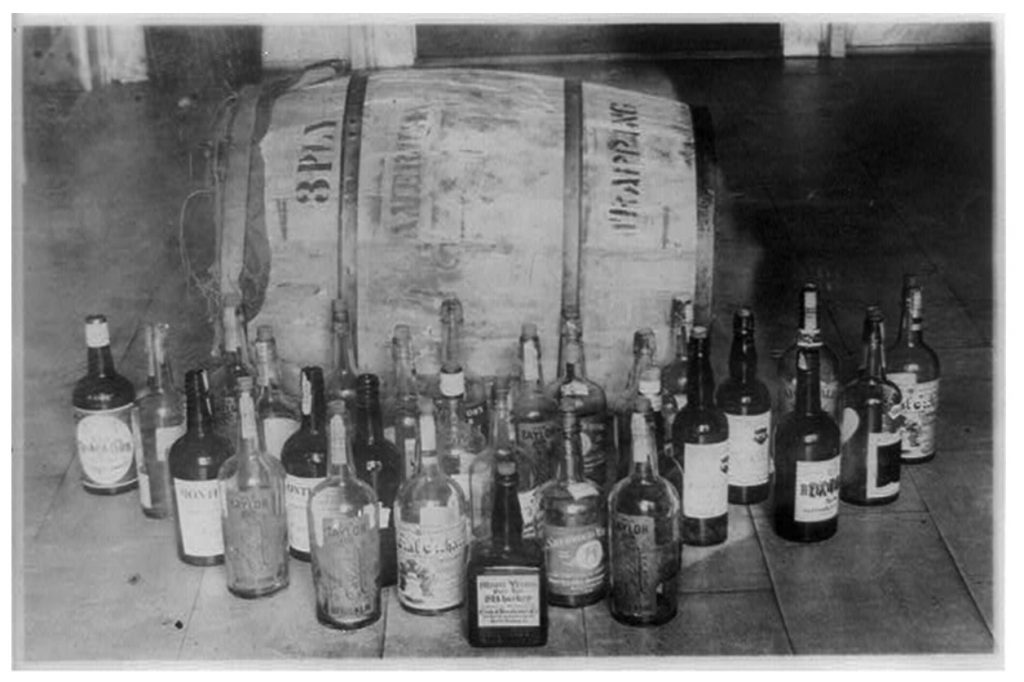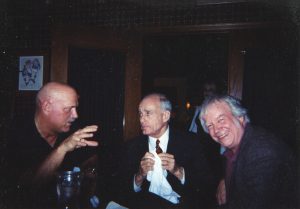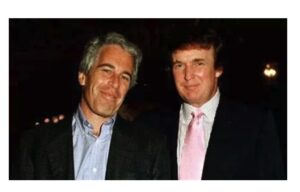Jon Miltimore
[Editor’s note: Edward Hendrie, who shared this with me, observed, “Wow! I never knew that. And nobody was prosecuted. Just like today with the COVID-19 vaccines.]
I was recently invited to speak to a student group about alcohol prohibition. During the course of my talk, I shared with them perhaps the most chilling historical account of America’s failed experiment to ban the sale of alcohol.
The Prohibition Era (1920 -1933), which began with the passage of the Volstead Act, had many problems. Virtually overnight, millions of Americans became criminals for the “crime” of having a drink. Instead of people trading money for a jug of beer or a bottle of gin, they had to make their own or turn to the black market. It resulted in a surge of organized crime and the rise of many of the most notorious gangsters in history, including Al Capone, Dutch Schultz, and Charles “Lucky” Luciano.
“In the absence of Prohibition, we wouldn’t have had the kind of syndicated criminality that occurred. Prohibition was the catalyst,” explains Howard Abadinsky, professor of criminal justice at St. John’s University and the author of the book Organized Crime.
One might think the surge of organized crime—which resulted in a corresponding surge of law enforcement to suppress it—would be the darkest consequence of Prohibition. It was not.
‘Our National Experiment in Extermination’
On Christmas Eve in 1926, a mysterious thing happened.
A man stumbled into New York City’s Bellevue Hospital claiming Santa Claus was chasing him with a baseball bat. He soon died, but another man celebrating Christmas soon followed with similar symptoms. He died as well. And then another.
Hospital staff counted no fewer than 60 people who arrived that night severely ill from alcohol, eight of whom died. Citywide, the total soon reached 23 dead. How this happened is no mystery.
Professor Deborah Blum, a journalist, director of the Knight Science Journalism program at MIT, and and author of The Poisoner’s Handbook: Murder and the Birth of Forensic Medicine in Jazz Age New York, described it all in a 2010 Slate article. Progressive bureaucrats were intentionally poisoning alcohol to encourage compliance.
“Frustrated that people continued to consume so much alcohol even after it was banned, federal officials had decided to try a different kind of enforcement. They ordered the poisoning of industrial alcohols manufactured in the United States, products regularly stolen by bootleggers and resold as drinkable spirits. The idea was to scare people into giving up illicit drinking. Instead, by the time Prohibition ended in 1933, the federal poisoning program, by some estimates, had killed at least 10,000 people.”
The “chemist’s war of Prohibition” is all but forgotten today, but it remains one of the darkest and strangest law enforcement programs in US history. Perhaps most shocking is how transparent and callus central planners were about their program. Blum notes that Charles Norris, New York City’s chief medical examiner during the ‘20s, casually noted the poisoning program was “our national experiment in extermination.”
Penetrating ‘the Fog of Lies’
During my talk, I asked students to raise their hand if they had ever heard of the poisoning program. Not one did. (The teacher also told me he had not heard about the program.)
Some students, frankly, looked skeptical. They aren’t the only ones who found the story hard to believe. (I certainly did.) Indeed, enough people have questioned the story’s veracity that USA Today issued a fact-check asserting the poisoning program is no myth.
This invites two important questions: 1) How did this atrocity happen? 2) Why are so few Americans aware of the government’s poisoning program?
I believe the answer to the first question is clear. The federal poisoning program was a result of government straying from its original and true moral purpose. In the classical liberal tradition, government is a necessary evil. The only reason this “social contract” exists at all is for a specific purpose: to protect life, liberty, and property.
“Each of us has a natural right – from God – to defend his person, his liberty, and his property,” 19th century economist and philosopher Frédéric Bastiat explained in The Law, echoing thinkers such as John Locke, Montesquieu, and Thomas Jefferson. In Bastiat’s view, the purpose of law is to uphold these rights.
The greatest atrocities in modern history—from slavery and eugenics to the Holocaust and Stalin’s Five-Year-Plans and beyond—all occurred as the result of people using the law for reasons other than its only true moral purpose. Prohibition sought to protect Americans from vice; but vices are not crimes, and this perversion of the law resulted in great social harms, including the federal poisoning program.
The second question is more difficult to answer: why are so few Americans aware of the government’s poisoning program? The students in my classroom were not an outlier. I received two degrees in history and never heard about the poisoning program—which killed exponentially more Americans than Japan’s attack on Pearl Harbor, according to some estimates—until I read Blum’s article.
The answer, I think, can perhaps be found in an essay written by Murray Rothbard in favor of revisionist history (questioning the standard interpretation of historical events). For many, revisionist history is viewed with skepticism and distrust; indeed, for many years, at least, I would have considered myself in this camp.
Rothbard, however, convincingly argued that revisionism may be necessary because of the state’s vast influence, which allows it to “bamboozle the public into accepting and celebrating the rule of its particular State.”
“The noble task of Revisionism is to de-bamboozle: to penetrate the fog of lies and deception of the State and its Court Intellectuals, and to present to the public the true history of the motivation, the nature, and the consequences of State activity,” Rothbard wrote. “By working past the fog of State deception to penetrate to the truth, to the reality behind the false appearances, the Revisionist works to delegitimate, to desanctify, the State in the eyes of the previously deceived public.”
In other words, the federal government’s poisoning program does not fit neatly into the effort—conscious or subconscious—to celebrate the rule of the state. To simply ignore it and pretend the event never happened may be part of the “bamboozling” process Rothbard describes.
Ten years ago, I would have said Rothbard’s take was oversimplified and too cynical. I wouldn’t describe it as such today (though I’ll admit there are other plausible explanations as to why Americans may not have heard about the feds’ poisoning program).
Regardless, the federal government’s poisoning program is important history that deserves to be taught and scrutinized for many reasons—not least of which is this: it’s a vital reminder of what can happen when humans stray from the true and moral purpose of the law.





There’s not much being said here lately about the (ill)legal immigrant situation, so allow me to add this as another distraction from the covid scam being exposed or from whatever else is being exposed at the present time. It’s actually gotten to where I can no longer distinguish being the distraction and from what we are being distracted. There are so many “governmental” criminal enterprises coming to the surfaces that’s it’s almost impossible to keep track of them. And yet, what I now laughingly call our leaders and are government still continue to exist as some kind of blood sucking zombie that just cannot be put down.
Chip Roy a Rep from Texas let’s that natty Nadler have it:
https://twitter.com/bennyjohnson/status/1512159977720487942
‘distinguish being”…s/b “distinguish between”….and I know Jim is working on that edit feature.
And why have we not heard anything about his, after six and a half years in the Corps?
https://military-history.fandom.com/wiki/Smedley_Butler